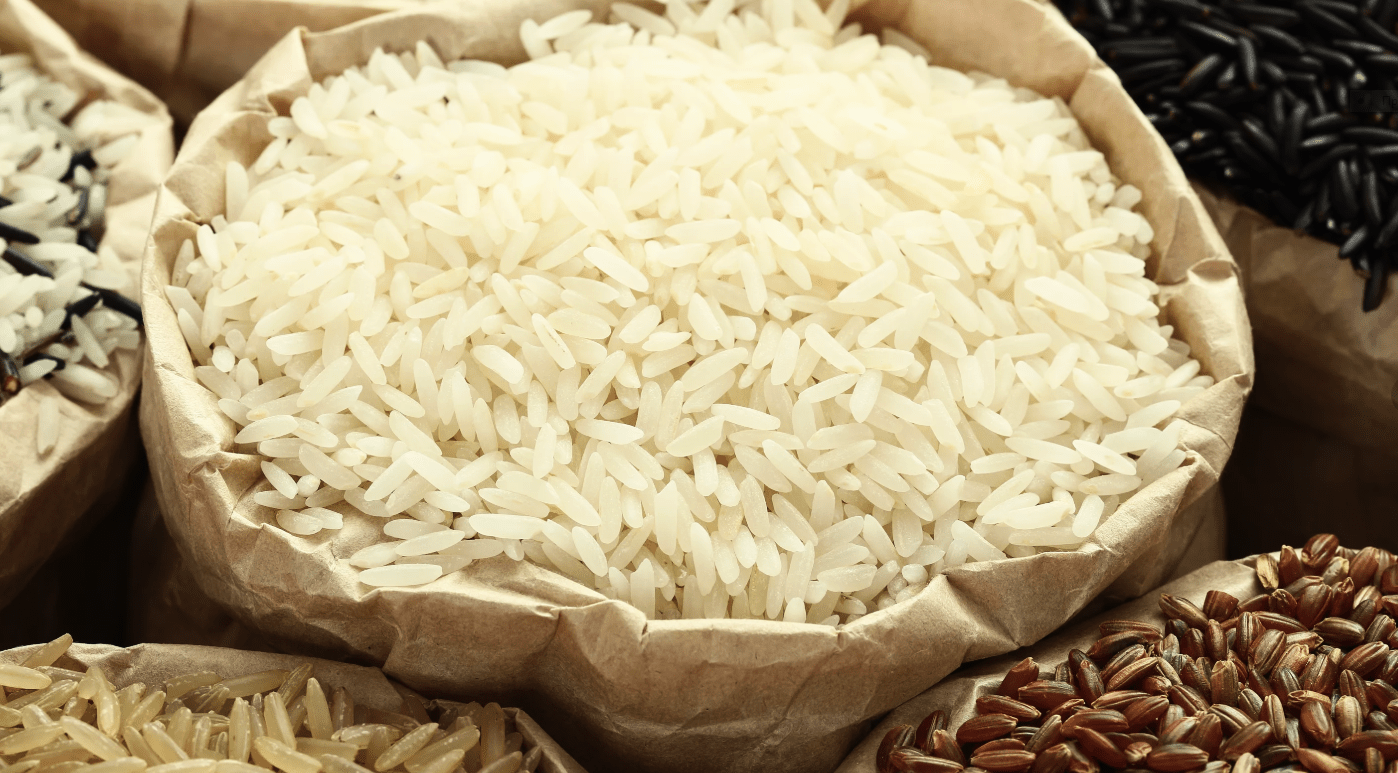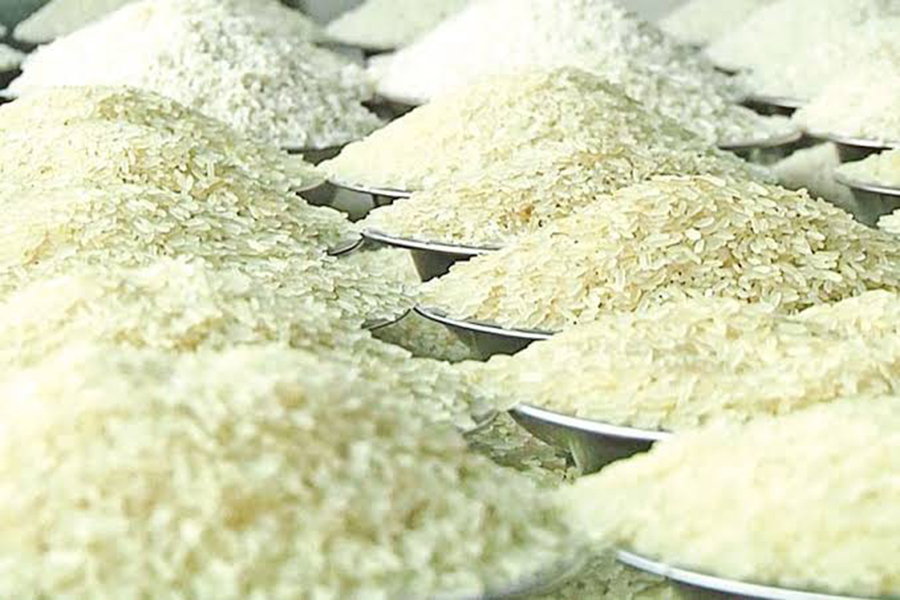Tags
China’s hybrid rice might be Indonesia’s latest solution to improving its food security, but at what costs?
Indonesia is the third-largest producer of rice in the world but isn’t self-sufficient, having to import the grain every year to make up for the shortfall.
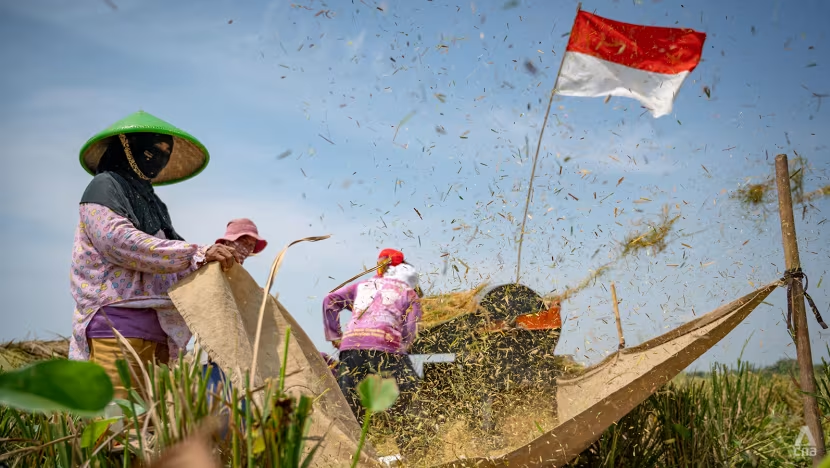
Farmers in Karawang, West Java, Indonesia, on May 2, 2024. (Photo: CNA/Danang Wisanggeni)
JAKARTA: Rice planting is set to be a new area of cooperation for Indonesia and China, promising better food security for the Southeast Asian state but also possibly tilting their bilateral ties.
The ambitious plan to progressively develop a million hectares of rice fields in Central Kalimantan province with Beijing providing its rice technology in support emerged from high-level bilateral talks last month.
While local farmers CNA spoke to welcome the initiative, analysts caution that key issues like the differences in local conditions, lack of infrastructure and overall costs stand in the way.
The analysts also highlighted Indonesia’s uneven farming track record – expressing concern the latest undertaking will repeat previous failures over the past three decades.
And even if success is reaped, at least one expert is concerned that it could tilt the balance of Indonesia-China ties, especially if China’s signature hybrid rice is involved.
“If we export the hybrid rice from China, Indonesia will be very dependent on China because the parent seed is controlled by China,” said Prof Dwi Andreas Santosa, an agriculture expert from Bogor Agricultural Institute (IPB).
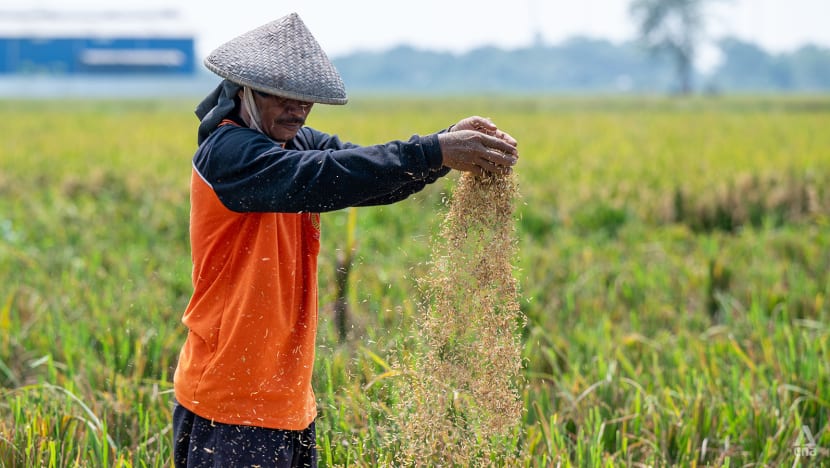
SOWING THE SEEDS OF COOPERATION
Indonesia’s Coordinating Minister for Maritime Affairs and Investment Luhut Pandjaitan laid out details of the agricultural endeavour on Apr 21, several days after co-chairing the fourth meeting of the China-Indonesia High-level Dialogue Cooperation Mechanism (HDCM) with Chinese Foreign Minister Wang Yi.
The annual meeting sees both countries reviewing, planning and coordinating cooperation in various fields. The latest edition was held in Labuan Bajo.
“We asked them to provide us with their rice technology, with which they have been very successful in being self-sufficient,” Mr Luhut said on his social media account.
“And they are willing. We just have to look for a local partner to build it in Central Kalimantan because we have had land there since ancient times, up to one million hectares.”
He added that they can start with 100,000 hectares first and then gradually manage it, without specifying a timeline.
Indonesia’s state-owned logistic company Bulog would be the off-taker, said Mr Luhut, and he hopes the project will start in six months.
Mr Jodi Mahardi, who is Mr Luhut’s deputy, told CNA that a task force would be set up for the cooperation, and it would be under the China-Indonesia HDCM.
“So, technically, there is no information yet we can reveal in detail,” Mr Jodi told CNA on May 1.
Beyond rice, the government also wants China to help Indonesia develop curly chilli, garlic, durian, and seaweed later this year.
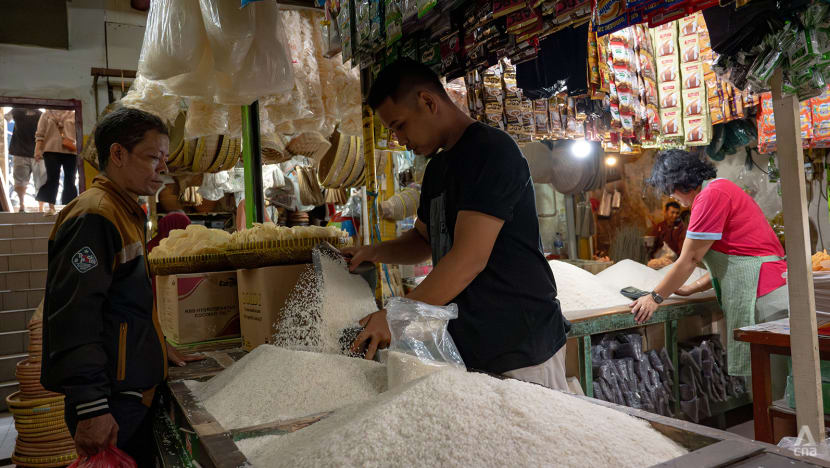
WHY CHINA?
Mr Luhut said China was chosen as Indonesia’s partner because it has been successfully self-sufficient in producing rice.
China is a rice powerhouse – accounting for approximately 28 per cent of global supply. According to a World Economic Forum article, it produced over 211 million tonnes of rice in 2019.
The country’s self-sufficiency rate of rice, wheat and corn is as high as 97 per cent on average and there is no import dependence, the state-run Global Times reported in 2020.
In comparison, Indonesia – the world’s third-largest rice grower – has yet to attain self-sufficiency. “Indonesia’s rice production, of which 93 per cent meets domestic demand, perennially falls short of consumption,” stated a commentary by ISEAS-Yusof Ishak Institute researchers last month.
To make up for the shortfall, Indonesia imports rice every year.
“I think this rice matter is very serious because our problem is always rice. We always import (yearly) 2 million, 1.5 million,” said Mr Luhut.
According to the country’s statistics agency, Southeast Asia’s biggest economy produced about 53.6 million tonnes of rice last year.
Mr Luhut highlighted that the current aim is to produce an additional 4 million to 5 million tonnes of rice yearly.
For example, he pointed out that 400,000 hectares of paddy fields in Pulang Pisau, Central Kalimantan can produce two million tonnes of rice.
“And so if this programme works, and in my opinion it should work, we will get 4-5 million tonnes. Our food security problem for rice will be resolved,” Mr Luhut said.
PRODUCING GAINS IN GRAINS
Prof Dwi Andreas Santosa from IPB believes China will help Indonesia develop hybrid rice. He noted that China pioneered hybrid rice, which is a crossbreed of two different parent varieties.
When grown under the same conditions as purebred rice varieties, hybrid rice can produce up to 30 per cent more yield.
“This is China’s strength. It started developing hybrid rice in the 70s and has managed to save China’s rice production,” Prof Andreas, as he is often referred to, told CNA.
At the same time, he cautioned that it may not be easy to develop hybrid rice in Indonesia, noting that the local climate is different from China’s.
Analysts expressed concern that the programme will repeat previous failures over the last 30 years as Indonesia tried to develop large plantations for rice and other crops to become self-sufficient.
“Introducing farming systems, such as bringing in technology or seeds from other countries such as China, is not always a good, efficient and immediately applicable solution,” said Mr Khudori, an agriculture expert from the Indonesian Political Economy Association (AEPI), an organisation which focuses on the archipelago’s economy.
Prof Andreas and Mr Khudori both highlighted how in 2007, then-Indonesian Vice President Jusuf Kalla went to China and expressed interest in hybrid rice.
Indonesia then cooperated with a Chinese company to develop hybrid rice, but to little avail.
“After the hybrid rice seeds were imported and marketed as part of seed assistance to farmers, the results were not encouraging. In several places, the hybrid rice planted by farmers contracted some disease,” said Mr Khudori.
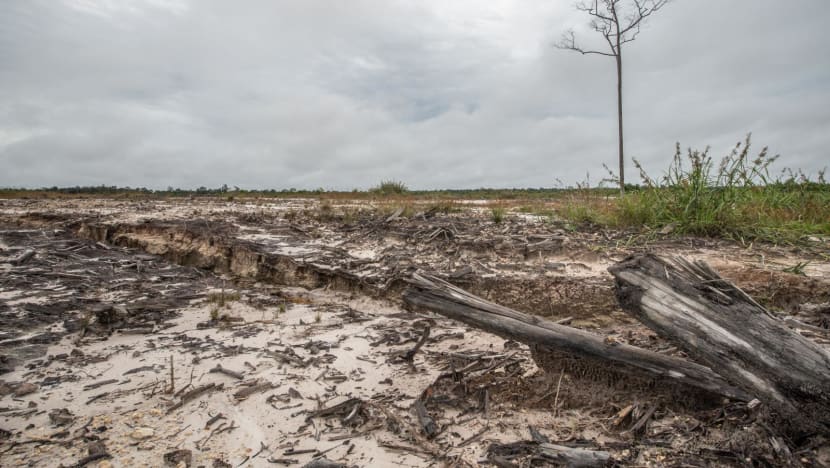
THE PURSUIT OF SELF-SUFFICIENCY
The self-sufficiency drive for crops has continued under President Joko Widodo through a programme called Food Estate, which has put down roots in Central Kalimantan among other areas.
The project is a multi-ministry effort – for example, one is responsible for clearing the land and setting up the irrigation system, another handles the actual planting of crops and yet another oversees strategic reserves.
The programme is largely considered a failure as it has not produced meaningful results since it started in 2020, observers note.
Some environmentalists have even blamed the government for environmental degradation, as they cut down large swathes of forest for the scheme.
Mr Bayu Herinata, executive director of non-governmental organisation (NGO) Walhi in Central Kalimantan, believes the latest Indonesia-China tie-up will wreak further environmental damage.
He also fears that the cooperation will create other problems, such as companies likely taking over the land and limiting the local rights to develop it.
To Mr Bayu, cooperation with China is not urgent as “food production is already good”.
“The challenge is not the technology but how far the government can help local farmers,” he said. For example, helping them gain access to fertilisers and capital.
Forest campaigner from Greenpeace Indonesia Mr Iqbal Damanik has similar concerns.
He added that if the government plans to develop rice fields in Central Kalimantan, this will fail again as the soil is not suited for mass rice production.
Mr Iqbal cited, for example, land in Gunung Mas regency, Central Kalimantan, which falls under the Food Estate programme.
With rice repeatedly failing to grow in the area, the government instead started to plant corn and harvesting began earlier this year. But Mr Iqbal said the corn was actually not planted on the soil; rather, it was planted in polybags.
“Is China even capable of developing the land? Gunung Mas is simply not suited for mass production, for example,” he added.
Money is another factor. Mr Iqbal says the cost of developing rice fields in Central Kalimantan will be very high due to the necessary development of infrastructure such as irrigation systems and roads, which many parts of the province still lack.
“This is a backward step. Factually speaking, there is no successful Food Estate, especially in Central Kalimantan,” Mr Iqbal stated.
TILTING THE BILATERAL BALANCE?
Should the scheme succeed after intensive research, IPB’s Prof Andreas also fears it would make Indonesia dependent on China – especially if it involves Chinese hybrid rice.
That’s because the parent seed is controlled by China, and local farmers would have to depend on the seed producers, he explained.
While this would not be an issue if bilateral ties are warm, problems could arise if relations turn sour, observers suggest.
Indonesia and China have overlapping interests in the North Natuna Sea, on the edge of the South China Sea. Chinese fishing vessels and coast guards have clashed with Indonesian fishermen several times there in the past few years.
But Dr Shafiah Muhibat, a Jakarta-based China expert with the Centre for Strategic and International Studies (CSIS), takes a different perspective.
“I think that Indonesia has this sort of strategy that puts its relation with China into different compartments,” she said.
“Meaning, for example, whatever happens in the political compartment generally does not impact its economic cooperation with China.”
Either way, such geopolitical considerations are far from the minds of local farmers in Central Kalimantan. Those CNA spoke to are looking forward to the rice initiative being planted with China’s help.
Mr Sarianto, who goes by one name, has not heard of the scheme but welcomes any cooperation to enhance their lives.
“I think it’s good, and the government should inform the people so that anyone who owns paddy fields knows about this.
“When the project starts, it should also involve the locals so we won’t be envious,” said the 47-year-old farmer in Kapuas regency.
Another farmer has a similar opinion. “If the project is true, I will be very happy because working with China will make us prosperous,” said Mr Rusimin from Dadahup village, who also goes by one name.
“And they can help us farmers, especially those in my village.”
https://www.channelnewsasia.com/indonesia-china-food-security-kalimantan-rice-4310791Published Date: May 7, 2024





